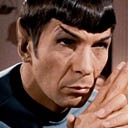Movie Review: Chungking Express
Sometimes a film is greater than the sum of its parts.
Wong Kar-wai’s 1994 arthouse classic Chungking Express demonstrates this. It’s a pretty bad film on paper. Most of the characters are unlikable and the narrative itself is frivolous and meandering. It embodies a number of curious tropes about relationships and sex without really having much profound to say. At a glance there is not much reason to recommend this one.
Yet Chungking Express is not a film meant for a glance. It is meant for a long melancholic gaze. With the right angle and mindset, the film really cooks. It does two things really really well. Firstly, it creates an incredible vibe. The soundtrack does a lot of the heavy lifting here. Faye Wong’s version of “Dreams” is just sheer perfection. “California Dreaming” was a bit overplayed but it was still a great song choice to represent Faye’s capricious spirit. Chungking Express is also beautifully shot. This is Wong Kar-wai’s third film and here you can see him coming into his own with his unique visual style.
Here is where we get into the film’s second virtue: How effectively it serves as a love letter to 1990’s Hong Kong. Chungking Express is a fantastic reminder of film’s ability to transport us to a particular time and place. Watching this movie made me nostalgic for a place and time I never experienced personally. Given the political and cultural shifts in Hong Kong over the last few decades, it’s safe to say that era is truly gone forever. I wish I could have been there at least once. As a consolation I have this wonderful movie that takes me all over the city, from dingy nightclubs and bars, to street markets and apartment blocks on balmy sunny days. Chungking Express justifies itself solely for its vibe and its naturalistic charm in how it captures the spirit of that city in that era.
You can sum up the negative aspects of Chungking Express most efficiently by just explaining the plot. The film is made up of two stories. The first and shorter story is about a man named Qiwu who buys cans of pineapple as a way of “pining” over his ex-girlfriend (sorry). He meets a mysterious woman in a blonde wig at a bar and they spend a platonic evening together in a hotel room where he watches her sleep. We the audience learn that this woman is actually a criminal involved in drug smuggling and human trafficking (she kidnaps a child and murders a guy in an alley).
The second and longer story focuses on “Cop 663” played splendidly by Tony Leung. He is also coming off of a recent breakup when he meets Faye, a mercurial food stand worker who falls for him. Her love for him manifests in the form of her breaking into his apartment when he is not around and…doing various things there. When he finds out and asks her on a real date, she agrees, stands him up, and disappears off to America for a year. When she comes back Cop 663 is still waiting for her, and when he asks her to stay, she goes to leave again, the film ending with him asking her to take him “wherever she goes.”
Wong Kar-wai is one of the most renowned tellers of love stories in all of Asian cinema. From a certain perspective we can appreciate the fatalistic ideas about relationships the movie implies from the lens of its two male leads. They are both content to be used and led by self-indulgent women. In other words, they’re both simps.
This becomes painfully obvious if you switch the genders in the story. Imagine a guy breaking into a woman’s apartment because he likes her so much. Imagine a movie where a man traffics poor immigrants, kills people, and kidnaps little girls, and then is presented in a whimsical romantic light to some depressive woman getting over a breakup. It doesn’t work and yet that’s kind of the point. Men and women are different. Both of these guys just accept that attractive women can just do whatever and their job is to chase and pine for them.
I would hate for my own sons to act this way. To be fair though, I don’t think this sort of vision of courtship is the film’s main theme; it’s only asserted implicitly. Wong Kar-wai does a better job of really exploring the subtleties of romance in his later works like In the Mood for Love. What we get in Chungking Express is more a slice of life. The film’s uniquely memorable energy makes up for its narrative failings. The subtext is perhaps better than the text. I also think this would have worked better as a proper short film — under 90 minutes.
In spite of myself I still really like this film and generally recommend it. There’s just nothing else like it. Especially as an outsider the exploration of Asian relationships and culture generally is worthy of its own essay. At the very least, watch it for vibes.
Grade: B
